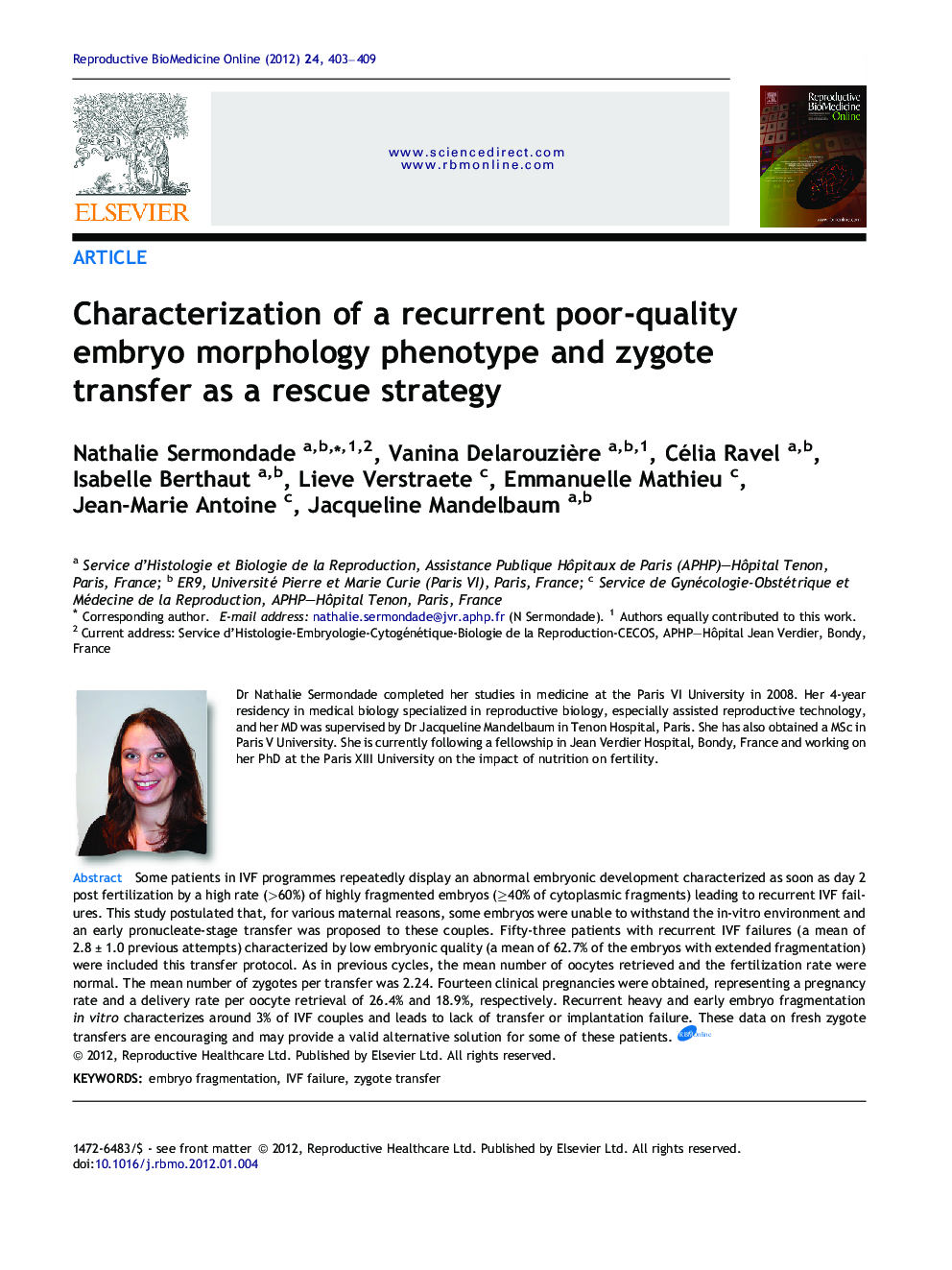| Article ID | Journal | Published Year | Pages | File Type |
|---|---|---|---|---|
| 3970695 | Reproductive BioMedicine Online | 2012 | 7 Pages |
Some patients in IVF programmes repeatedly display an abnormal embryonic development characterized as soon as day 2 post fertilization by a high rate (>60%) of highly fragmented embryos (⩾40% of cytoplasmic fragments) leading to recurrent IVF failures. This study postulated that, for various maternal reasons, some embryos were unable to withstand the in-vitro environment and an early pronucleate-stage transfer was proposed to these couples. Fifty-three patients with recurrent IVF failures (a mean of 2.8 ± 1.0 previous attempts) characterized by low embryonic quality (a mean of 62.7% of the embryos with extended fragmentation) were included this transfer protocol. As in previous cycles, the mean number of oocytes retrieved and the fertilization rate were normal. The mean number of zygotes per transfer was 2.24. Fourteen clinical pregnancies were obtained, representing a pregnancy rate and a delivery rate per oocyte retrieval of 26.4% and 18.9%, respectively. Recurrent heavy and early embryo fragmentation in vitro characterizes around 3% of IVF couples and leads to lack of transfer or implantation failure. These data on fresh zygote transfers are encouraging and may provide a valid alternative solution for some of these patients.Some patients in IVF programmes repeatedly display an abnormal embryonic development characterized as soon as day 2 post fertilization by a high rate of highly fragmented embryos, leading to recurrent IVF failures. We hypothesized that, for various reasons, some embryos were unable to withstand the in-vitro environment and an early pronucleate stage transfer was proposed to these couples. Fifty-three patients with recurrent IVF failures characterized by low embryonic quality were included in this transfer protocol. As in previous cycles, the mean number of oocytes retrieved and the fertilization rate were normal. The mean number of zygotes per transfer was 2.24. Fourteen clinical pregnancies were obtained, representing a pregnancy rate and a delivery rate per oocyte retrieval of 26.4% and 18.9%, respectively. Recurrent early and heavy embryo fragmentation in vitro characterizes around 3% of IVF couples and leads to lack of transfer or implantation failure. Our data on fresh zygote transfers are encouraging and may provide a valid alternative solution for these patients.
